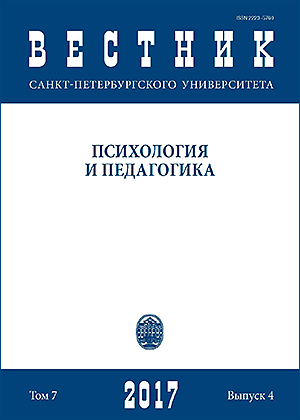Organisational and methodological issues of data collection in an internet based study of Facebook users from Russia and USA
DOI:
https://doi.org/10.21638/11701/spbu16.2017.402Abstract
The article presents a detailed description of the major steps and a description of the basic findings of the project aimed to gather psychological, demographic and text data of Facebook users from Russia and the USA by means of a special web-application and subsequently analyze them. Psychological characteristics were evaluated with the help of online questionnaires with the built-in feedback (e. g. Short Dark Triad, moral disengagement, subjective wellbeing WHO-5, SWLS, PC PTSD scales). Besides, on participants’ consent, the application downloaded demographic data from their accounts and their public wall posts’ texts that were later analyzed with linguistic methods. The article for the first time in Russia presents the description of each step of that kind of research, including the ads campaign on Facebook expenses for Russia and USA (which allowed to distribute the link to the application). It also presents a number of significant research findings of the project being finalized at St. Petersburg State University. We mention the necessary points in data collection for the colleagues who plan to organize similar research, including those in terms of time, money, software development, feedback phrasing. We also draw attention to the possible technical, organizational and methodological complications and also to the means to overcome them based on our experience.
Keywords:
methods of data collection, the milestones of an internet based study, social networks, Facebook, social networks users’ behavior, data collection by means of application, the feedback in internet based studies
Downloads
References
Downloads
Published
How to Cite
Issue
Section
License
Articles of "Vestnik of Saint Petersburg University. Psychology" are open access distributed under the terms of the License Agreement with Saint Petersburg State University, which permits to the authors unrestricted distribution and self-archiving free of charge.




